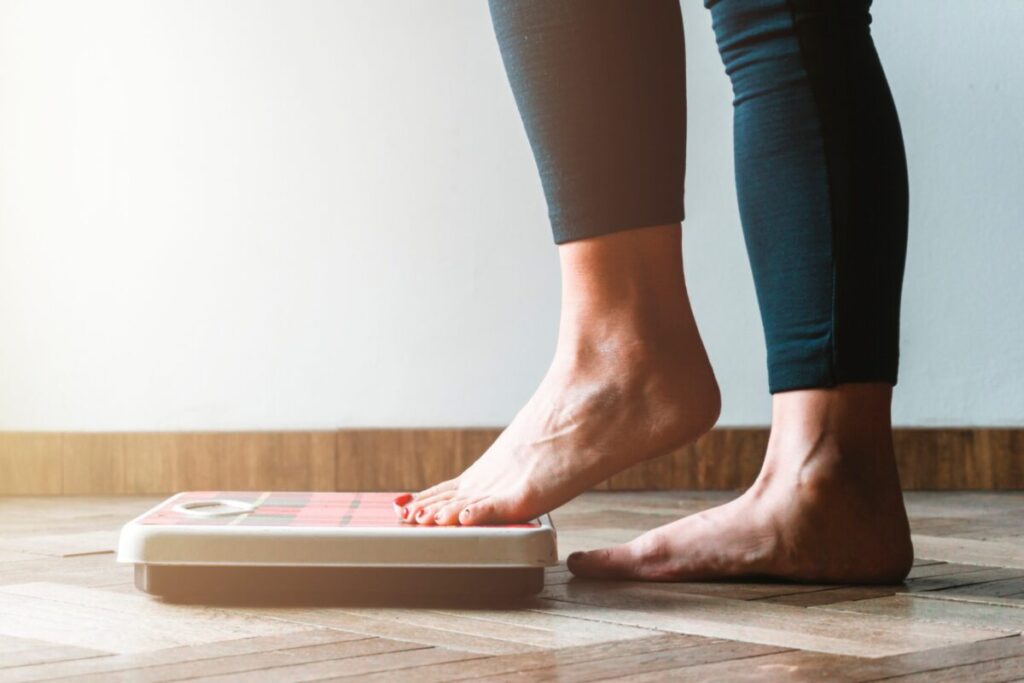
Embarking on a weight loss journey is a common endeavor, driven by a desire for improved health and well-being. However, not all paths to weight loss lead to success. In this comprehensive guide, we’ll explore the dieting pitfalls that many individuals encounter and provide valuable insights on how to avoid them. From fad diets to unrealistic expectations, understanding these common mistakes is essential to achieving sustainable weight loss.
The Allure of Fad Diets
Falling for Quick Fixes
One of the most prevalent dieting pitfalls is the allure of fad diets. These diets promise rapid weight loss through extreme restrictions or unconventional eating patterns. While the initial results may seem appealing, they often come at the cost of long-term health. If you want to go for a run while on a diet you should wear men’s joggers.

Fad diets can be based on various principles, from eliminating entire food groups to promoting excessive consumption of specific foods. The problem with such diets is their lack of sustainability. When individuals follow restrictive eating plans, they are more likely to experience nutrient deficiencies, muscle loss, and even metabolic slowdown. Quick fixes rarely lead to lasting results and can result in a cycle of weight gain and loss, commonly known as yo-yo dieting.
The Importance of Sustainable Changes
To avoid the pitfall of fad diets, opt for a more balanced and sustainable approach. Successful weight loss is a gradual process that involves making healthy, long-term changes to your eating habits and lifestyle. These changes should be realistic and adaptable to your daily life, ensuring that you can maintain them over time.
You should use IV hydration in your diet if you ever feel tired.
Setting Unrealistic Expectations
Chasing Unrealistic Goals
Another common mistake in weight loss journeys is setting unrealistic expectations. Many individuals expect to shed large amounts of weight in a short period. These high expectations can lead to frustration and disappointment when results don’t align with their goals.
It’s important to remember that healthy weight loss typically ranges from 0.5 to 2 pounds per week. While this may seem slow, it is a sustainable pace that allows your body to adapt and minimize muscle loss. Rapid weight loss often involves losing water weight and lean muscle mass, not body fat.
The Power of Realistic Goal Setting
To avoid the pitfall of unrealistic expectations, set achievable goals that align with a healthy rate of weight loss. Celebrate your progress along the way and recognize that sustainable weight loss is about more than just numbers on a scale. It encompasses improved energy levels, better overall health, and enhanced self-esteem.
Sometimes diet can be exhausting and can affect your mental health. In that case, you should relax by going to a place like a luxury salon in Toronto.
Overlooking Portion Control
Eating Mindlessly
Portion control is a fundamental aspect of managing your calorie intake, yet it’s a common pitfall for many. Mindless eating, where individuals consume without awareness of portion sizes, can lead to overeating and hinder weight loss progress.
This tendency is often exacerbated by larger portion sizes at restaurants and an abundance of processed calorie-dense foods. In today’s fast-paced world, it’s easy to eat quickly and without attention to the body’s hunger cues, making portion control a critical skill to develop.
Mastering Portion Control
Overcoming this pitfall requires mindful eating practices. Pay attention to your body’s hunger signals and eat slowly. Consider using smaller plates and utensils to create the illusion of larger portions. Additionally, educate yourself about appropriate portion sizes for different food groups, as it can significantly impact your ability to manage your weight. You can add milk chocolate edibles to your diet if you want a little bit more calories.
Skipping Meals
Believing in the Myth of Skipping Meals
Some individuals fall into the trap of believing that skipping meals is an effective strategy for weight loss. The logic behind this misconception is that fewer meals mean fewer calories consumed. However, the reality is quite different.
Skipping meals can lead to overeating later in the day, as hunger builds up. This often results in poor food choices, including high-calorie, low-nutrient options. Moreover, skipping meals can slow down your metabolism as your body goes into conservation mode, making it more challenging to lose weight.
Prioritizing Consistent Meals
To avoid this pitfall, prioritize regular, balanced meals throughout the day. Aim for three main meals and snacks if necessary, and make sure they include a mix of protein, healthy fats, and fiber-rich carbohydrates. Consistent eating helps maintain stable blood sugar levels and prevents overindulgence.
Ignoring the Importance of Hydration
Underestimating the Power of Water

Hydration is often underestimated when it comes to weight loss. Water plays a vital role in various metabolic processes and can aid in controlling appetite. Ignoring the importance of adequate hydration can lead to overeating and hinder your weight loss efforts.
Research suggests that drinking a glass of water before a meal can help you feel fuller and consume fewer calories. It’s a simple yet effective strategy to prevent overindulgence.
Prioritizing Hydration
To avoid this pitfall, make sure to drink enough water throughout the day. Adequate hydration can also support your body’s natural detoxification processes and improve overall well-being. Consider carrying a reusable water bottle with you to stay on track with your daily water intake.
Relying Solely on the Scale
The Scale as the Sole Measure of Progress
While the scale is a useful tool for tracking weight loss, relying solely on it can be misleading. The scale doesn’t provide a complete picture of your progress, as it doesn’t differentiate between changes in body fat, muscle mass, and water weight.
Focusing exclusively on the scale can lead to frustration and disappointment, especially if you’re incorporating exercise into your weight loss journey. Exercise can lead to muscle gain, which may offset weight loss on the scale.
Comprehensive Progress Tracking
To avoid this pitfall, consider using multiple methods to track your progress. Measurements of body circumference, body fat percentage, and photographs can provide a more accurate reflection of your changes. Additionally, pay attention to non-scale victories, such as improved fitness levels, better sleep, and increased energy.
Ignoring Emotional Eating
The Impact of Emotional Eating
Emotional eating is a common dieting pitfall that can sabotage your weight loss efforts. Many individuals turn to food as a coping mechanism for stress, anxiety, or sadness. This type of eating is often unplanned and can result in overconsumption of high-calorie, low-nutrient foods.
Strategies to Avoid Emotional Eating
Addressing emotional eating requires recognizing your triggers and finding alternative coping strategies. Engaging in stress-reduction techniques like meditation, exercise, or talking to a therapist can help manage emotional eating. Additionally, keep a food journal to identify patterns and make conscious choices about your food intake. If you want to avoid emotional eating you can focus on different things like contacting the fence company in St Augustine and choosing a perfect fence for your yard!
Lack of Meal Planning
Haphazard Meal Planning
Meal planning is an essential component of successful weight loss, yet many individuals neglect it. Without a plan in place, you are more likely to make impulsive food choices, often opting for convenient but less nutritious options. You can find a lot of easy air fryer recipes for college students if you are a student. It can really help you to plan your meals.
Effective Meal Planning
To avoid this pitfall, create a meal plan that includes a variety of nutrient-dense foods. Plan your meals and snacks in advance, and consider batch cooking or preparing ingredients ahead of time. Having healthy options readily available makes it easier to stick to your weight loss goals. There is an amazing website where you can create your meal plans and it is created by a company that provides UI/UX design services.
Neglecting Exercise
While diet plays a significant role in weight loss, the benefits of exercise should not be overlooked. Neglecting physical activity can lead to slow progress and hinder your ability to maintain weight loss over time. If you neglect exercise and you don’t take proper care of your body be sure to contact a long term care pharmacy.
Incorporating Exercise
To avoid this pitfall, incorporate both cardio and strength training exercises into your routine. Exercise not only burns calories but also helps build lean muscle, which can boost your metabolism. Additionally, regular physical activity is essential for overall health and well-being. Exercise and muscle gain are really important if your goal is to work for a security company in Los Angeles or something similar.
Lack of Accountability
Failing to Seek Support
Attempting to lose weight in isolation can be challenging. Failing to seek support and accountability can lead to decreased motivation and adherence to your weight loss plan.
The Importance of Accountability
To avoid this pitfall, consider joining a weight loss group, working with a registered dietitian, or sharing your goals with a friend or family member. Having someone to share your challenges and successes with can provide motivation and encouragement throughout your journey.
- Joining a Weight Loss Group: Enrolling in a weight loss group can be a transformative step in your fitness journey. These groups often provide a nurturing environment where individuals with similar goals and struggles come together to offer guidance and motivation. You’ll find a sense of camaraderie as you share your experiences, challenges, and victories with others. Moreover, being part of such a group can hold you accountable, as you’ll have scheduled meetings and interactions that keep you focused and on track.
- Working with a Registered Dietitian: Nutrition plays a pivotal role in any weight loss plan. Collaborating with a registered dietitian ensures you receive personalized advice tailored to your specific needs and preferences. They can help you create a balanced and sustainable meal plan that maximizes your progress. Regular consultations with a dietitian can also address any nutritional concerns, making it easier to maintain your motivation and stay on course. If you need a loan to pay for your dietitian be sure to contact a company that provides loan servicing for hard money lenders.
- Sharing Your Goals with a Friend or Family Member: Communicating your weight loss objectives with a trusted friend or family member can be a powerful source of support. They can be your cheerleader, offering encouragement and positive reinforcement as you work toward your goals. Sharing your journey with someone close to you allows for open dialogue about your challenges, and they can offer solutions or simply lend a listening ear when needed. Your loved ones can also partake in healthy activities with you, making the journey more enjoyable and fostering a sense of togetherness.
- Leveraging Technology: In the digital age, there are numerous apps and online communities dedicated to health and fitness. Utilizing these tools can add another layer of burstiness to your weight loss strategy. You can engage with like-minded individuals on social media, track your progress through apps, and access a wealth of information and resources to keep your motivation high. These platforms offer a dynamic, ever-evolving landscape of support and advice.
Innovative Tools for Success

In our quest for sustainable weight loss, it’s important to stay open to innovative tools and techniques that can support our efforts. One such tool is the emergence of smartphone apps and wearable devices designed to track and motivate healthy behaviors.
When you are finally satisfied with your body you can remove a pool cover 12×24 from your pool and have a great time in it!
These apps can help you monitor your daily activity levels, and caloric intake, and even provide access to workout routines and meal plans. Some apps also offer social support through community features, connecting you with like-minded individuals who are on similar weight loss journeys. This sense of community and accountability can be a powerful motivator.
Moreover, the integration of artificial intelligence and machine learning into these apps allows for personalized recommendations and insights. They can adapt to your progress and provide real-time feedback, making your weight loss journey more effective and engaging.
When you are done with your diet and you are satisfied with your body you can contact a Vancouver boudoir photographer to create an amazing photoshoot session!
